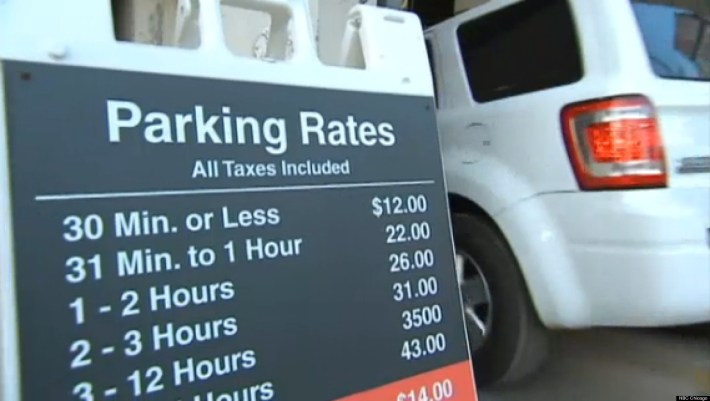It seems logical enough: In cities where parking costs are higher, more people ride transit. That's the major finding from a recent study published in the Journal of Public Works and Management Policy.
But this type of empirical evidence is actually rare, in part because of the difficulty of obtaining data about public parking rates across U.S. cities. In addition, researchers found that transit use and parking rates were strongly correlated only in certain types of cities.
Researchers gathered data on parking rates and fines in 107 different public jurisdictions and cross-referenced it with local transit ridership. They found that in large cities -- defined as cities with a population density of 6,200 people per square mile or higher -- there was a strong relationship. Among these cities, places with high parking costs -- defined through a combination of rates, fines, and fees -- were associated with a 2.3-fold increase in public transit passenger miles per person, when adjusted for local economic factors like poverty rates and gas prices. ("Large cities," by this definition, would include Los Angeles and Baltimore but not Pittsburgh or Houston.)
In smaller cities, however, the correlation between parking costs and transit ridership was not statistically significant. The authors hypothesized that this could be the result of poor transit availability, high fares, and/or sprawling land use.
Rachel Weinberger, one of the study's authors, told Streetsblog that smaller cities may have so much excess off-street parking that it's impossible to detect an effect. "One of the things that we see in smaller cities, generally the zoning code requires about twice as much parking as the busiest parts of the city actually need," she said. "So there’s no price or supply restriction, so it doesn’t wind up being a binding consideration when someone’s making a decision."
The researchers found that cities across the board charge relatively low rates for on-street parking. The average meter price was $1.17 per hour. Only about 25 percent of larger cities charged more than $2 per hour. Weinberger said that the lack of variability made it difficult to draw conclusions based on curb prices. "The meter price could be a dollar an hour in New York and a dollar an hour in Omaha," she said.
Off-street parking rates vary more. They tend to be significantly higher in larger cities -- $6 per hour and $17 per day -- and lower in smaller cities -- $3 per hour and $10 per day.
The authors characterize their research as an exploratory study that they hope will lead to further research into the relationship between parking incentives and transit use.






